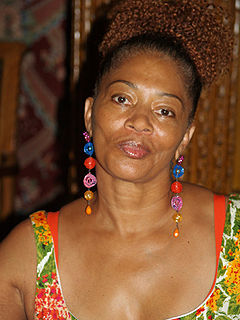A Quote by Terry McMillan
Don't worry about how pretty (the story) sounds, how lilting it is, and the imagery, and the metaphor, all that. Most readers don't care. It's the people in your book that matter.
Related Quotes
If we don't understand how metaphor works we will misunderstand most of what we read in the Bible. No matter how carefully we parse our Hebrew and Greek sentences, no matter how precisely we use our dictionaries and trace our etymologies, no matter how exactly we define the words on the page, if we do not appreciate the way a metaphor works we will never comprehend the meaning of the text.
Treat your career like a bad boyfriend...
Your career wont take care of you. It won't call you back or introduce you to its parents. Your career will openly flirt with other people while you are around... You have to care about your work, but not about the result. You have to care about how good you are and how good you feel, but not about how good people think you are or how good people think you look.
I began as a dramatist in the theater, so I'm always thinking about how a story moves, what it looks like, how to engage the senses, how dialogue sounds, what feels authentic and sounds real, what's funny, how to build distinctive and original characters - all the aspects of playwriting, scene-building, the architecture of dramatizing.
The book is about zombies, in that it is the over-arching theme, but what's going on is the story of these people and how these survivors deal. I think that's so much more of an interesting story, and that's what really gets and hooks these readers into the book and the show. It's a mix of fans of drama, fans of AMC, fans of horror and fans of Frank [Darabont]. It's a lot of people just coming together and realizing a genre doesn't have to be fixed in one specific detail.
I get letters from two kinds of readers. History buffs, who love to read history and biography for fun, and then kids who want to be writers but who rarely come out and say so in their letters. You can tell by the questions they ask - How did you get your ?rst book published? How long do you spend on a book? So I guess those are the readers that I'm writing for - kids who enjoy that kind of book, because they're interested in history, in other people's lives, in what has happened in the world. I believe that they're the ones who are going to be the movers and shakers.
The biggest threat to your creativity is the fear that it's already been done, said, created. (So why bother?)
Say it, do it, make it anyway - but tell YOUR story along the way.
The story of how you came to know what you know.
The story of what you want to know more of.
The story of why you do what you do.
The story of how you came to care.
And that's how you create what's never been created before.
If an audience finds themselves paying attention to how you made your film, you're sunk because that means they're unplugged from your story. What matters is what's unfolding on the screen, not how you put it there. It doesn't matter if it's red triangles or million dollar software if the audience doesn't care.
Creativity is more about taking the facts, fictions, and feelings we store away and finding new ways to connect them. What we're talking about here is metaphor. Metaphor is the lifeblood of all art, if it is not art itself. Metaphor is our vocabulary for connecting what we are experiencing now with what we have experienced before. It's not only how we express what we remember , it's how we interpret it - for ourselves and others.






































